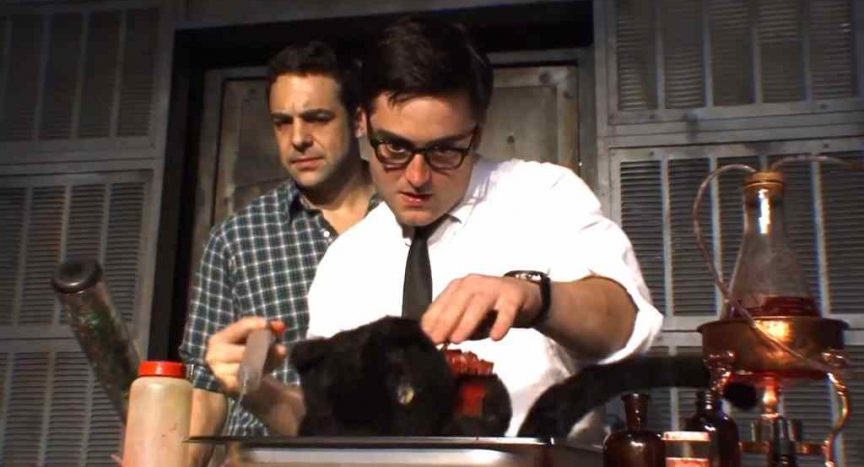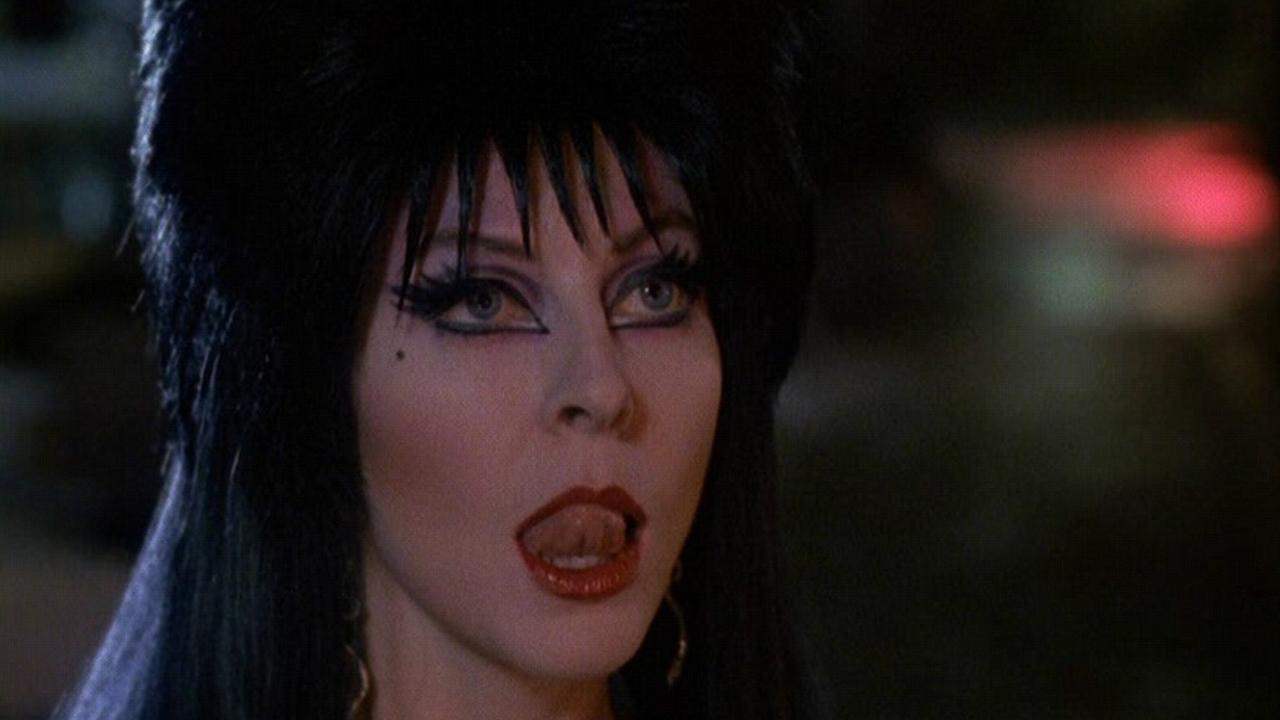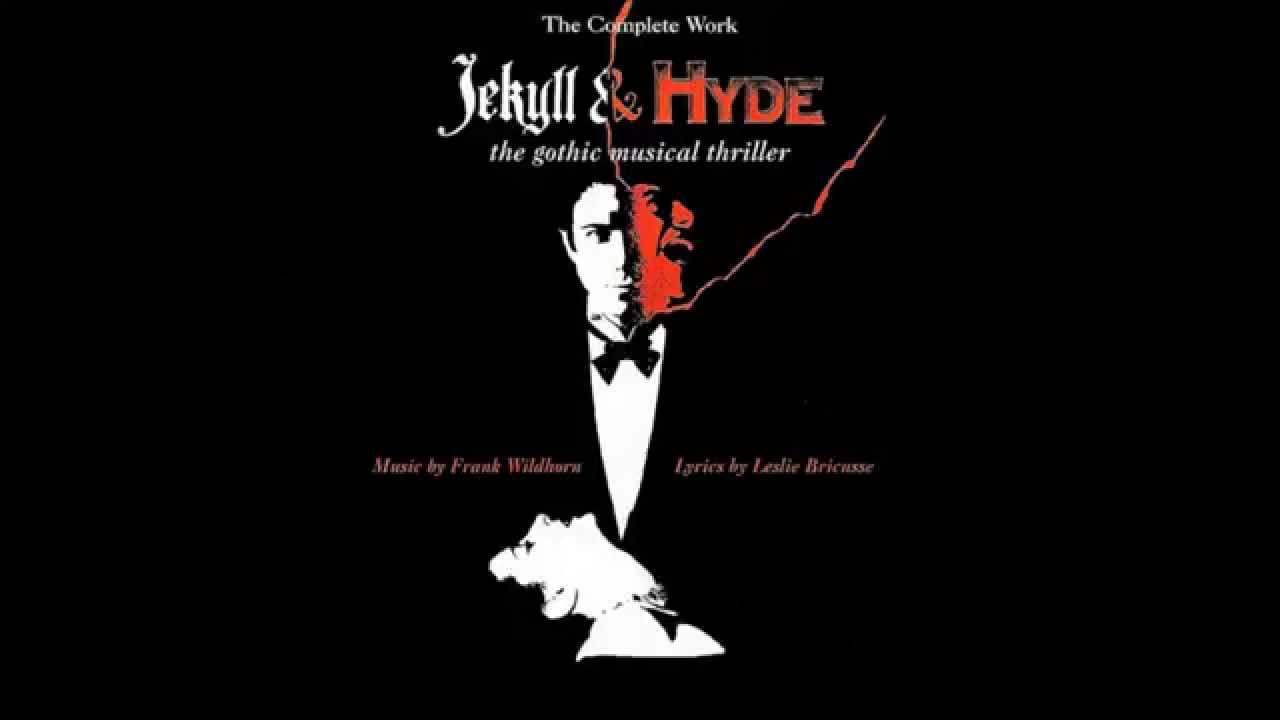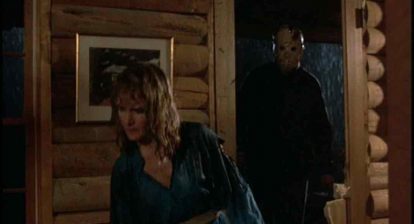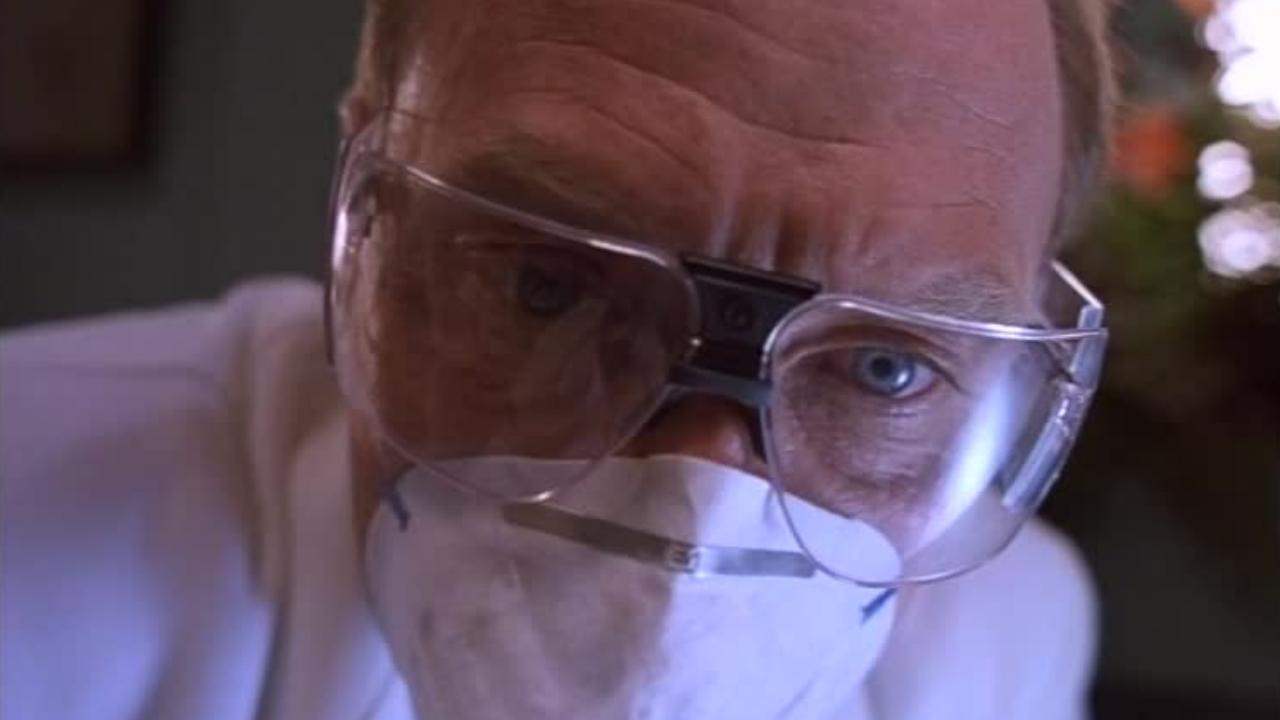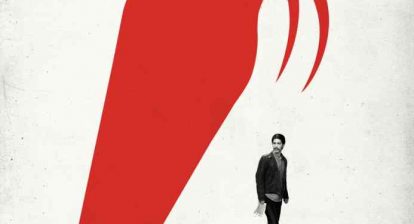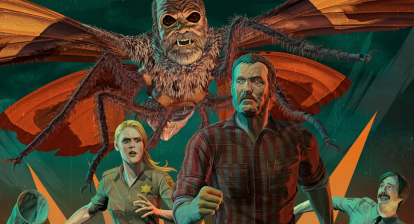Stuart Gordon has been involved with some of the most iconic horror films of the past 30 years and he continues to find new ways to innovate and delight fans of genre film. So we naturally jumped at the opportunity to speak with him about the upcoming revival of Re-Animator: The Musical. In this exclusive interview, we discuss fan reaction to the Re-Animator stage play and delivering practical effects before a live audience; then we take a moment to reminisce on Fear Itself. Head inside for the full interview!
Wicked Horror: Your background is in theater. Was that a driving factor in your decision to adapt Reanimator for the stage?
Stuart Gordon: Yeah. I’ve always loved theater. That’s how I began my career; I was an artistic director for The Organic Theater Company in Chicago. I worked in theater for 15 years before moving to California to do movies. And I have continued doing plays ever since.
Someone suggested the idea of Re-Animator as a musical and I thought the idea was silly at first. But the more I thought about it, the more I realized that the movie is very contained. There are only a few characters. The effects we used in the movie were all practical and could be done live on stage. I realized that it was actually a great idea. And I started working with Mark Nutter, the composer.
WH: Did the success of stage productions like Evil Dead: The Musical have any influence on your decision to bring Re-Animator to the stage?
Stuart Gordon: I have come to realize that there is a whole sub-genre of musicals based on horror movies. There’s Little Shop of Horrors, Phantom of the Opera, The Evil Dead, and even Silence of the Lambs has been adapted for the stage. I think horror kind of lends itself to musicals because it’s very emotional which is common to most musicals.
WH: What made you want to put together a revival of Re-Animator: The Musical?
Stuart Gordon: We actually hadn’t really retired it. The last time we produced it we took it to The Musical Theater Festival and then to The Edinburgh Festival in 2012. After that, I sat down with the composer because we wanted to do some more work on it. We’ve actually added some new songs. It’s a different production now than when we did it two years ago and we wanted to try it out.
WH: In adding the new songs, did you remove any from the previous version?
Stuart Gordon: We took out a couple of songs but nothing major. I think that the replacements are far better than what was there before. We also took some of the other songs and expanded them, so they are better than ever now! I’m really looking forward to getting it in front of an audience and trying out the new stuff.
WH: How did the tone from the film translate to the stage? It seems like the darkly comedic overtones from the picture would be perfect for a stage adaptation in the sense that the cast is singing about re-animated corpses. There’s a bit of humor inherent to that.
Stuart Gordon: It does lend itself really well to the stage. The movie was funny and I think the play is even funnier. Mark Nutter, the composer, has incorporated a lot of that into the music. I think that only about ten minutes of the play’s dialogue is actually spoken word.
WH: It must be very lively to have so much of the production done in song. That’s bound to be good for audience engagement.
Stuart Gordon: It is! We’ve had people come to see the show so many times that they even sing along on some of the songs. There’s a University fight song that people will sing along to and even bring pom poms to wave during the show. There’s a lot of blood flying around as well. We call the first three rows the splash zone. We’ve actually had audience members show up wearing all white. One time, a couple sitting in the very first row arrived wearing a tuxedo and a wedding dress. They were covered in blood by the end of the show. There’s a lot of audience involvement with the play.
WH: Speaking of the splatter zone, how have the practical effects from the film translated to the stage production? Has it been difficult not being able to use cutaways and not having the benefit of multiple takes?
Stuart Gordon: We’ve had a couple of misfires. But for the most part – I would say 99% of the time – it’s been on target. We’ve been lucky to have had the same guys who did the effects for the movie doing the effects for the play.
WH: Is the process of rigging special effects for a play significantly different than how you would do them in a film?
Stuart Gordon: Most of it is pretty similar. There were a couple of things we had to figure out for the play. But we’ve used a lot of devices similar to what was used in the movie. Back in the day when we made the film, there was no CG. So everything was done practically. And when you’re live on stage, it’s a similar situation.
WH: Is there any chance that you will take the show on the road?
Stuart Gordon: Actually, we may at some point. That’s one of the things we were talking about. We would like to start a touring production of the show.
WH: I know that this might be a sticky wicket because of the difference in pay for a stage actor versus a screen actor but I am curious if you have considered bringing back any of the original cast members?
Stuart Gordon: I did talk to Jeffrey Combs and Bruce Abbot about joining the production at one point. But they are both busy and it didn’t work out. They’ve both come and seen it though, which has been really fun. They said that watching it really brought them back.
WH: I noticed that Chiller TV is gearing up to re-broadcast Fear Itself. I’ve always kind of wondered why that show didn’t seem to resonate with mainstream audiences. I really enjoyed it but it only lasted one season. As someone involved with the series, what do you think went wrong?
Stuart Gordon: It actually did pretty well. It was a fairly highly rated show. What actually killed it was The Olympics. The network took the show off the air when The Olympics came on and they never ended up bringing it back. Out of the 12 episodes that were done, I think they only aired 6 or 7 of them.
WH: I had assumed it must have been a ratings issue. Because typically, a highly rated show doesn’t go off the air for no reason. That’s interesting.
Stuart Gordon: Yeah. I know. It was frustrating. I think my episode was the highest rated of those that aired and it was one of the last ones that they showed. So it seems that the audience was building. I still don’t quite understand why they didn’t bring it back.
For tickets to any of the upcoming engagements, check out the production’s official website.
